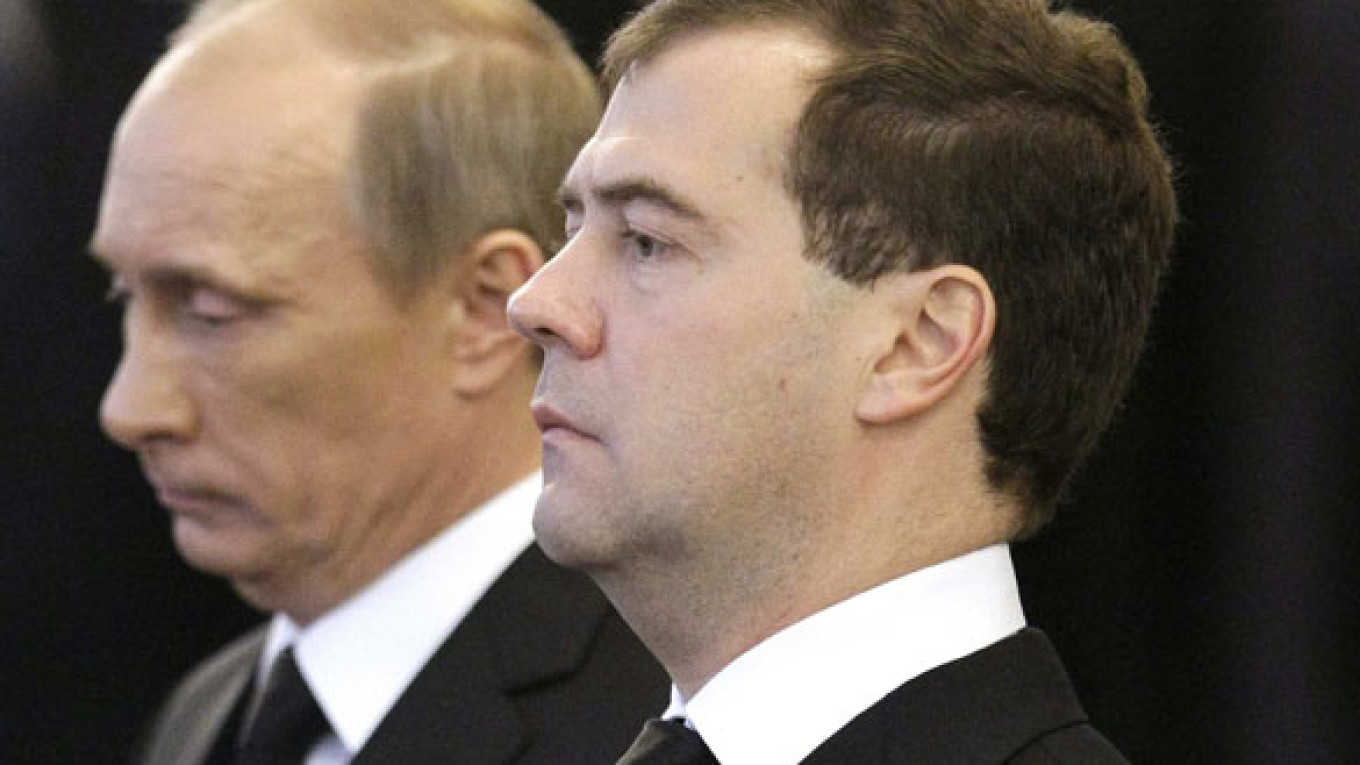In a new sign of the Kremlin's changing stance on the opposition, President Dmitry Medvedev unexpectedly vetoed on Saturday a bill cracking down on rallies that had sailed through both chambers of parliament.
Medvedev criticized the bill for “provisions hindering the freedom of citizens' constitutional right to hold assemblies, rallies, demonstrations, marches and pickets,” the Kremlin said on its web site.
His remarks were addressed to State Duma Speaker Boris Gryzlov and Federation Council Speaker Sergei Mironov. Both chambers approved the bill, widely criticized by human rights activists and opposition groups, in October.
Gryzlov's United Russia party, which co-wrote the legislation with Mironov's A Just Russia, indicated that it was ready to revise the bill.
“We will act in logical accordance with the president's decision,” Andrei Vorobyov, a senior United Russia member, said in a statement Saturday. “We will consider his remarks as part of our regular work. The bill might face a revision.”
The rejected bill banned individuals and legal bodies, including political parties, from organizing public gatherings if convicted of an administrative offense — a wide range of minor violations including ignoring a red traffic light.
It also said rally organizers could not inform the public about their plans, including the theme of a rally, until local authorities approved the date and place of the event.
The bill proposed that local authorities set rules for rallies involving cars — a measure that appeared to target so-called “blue bucket” car rallies held by motorists opposing the use of flashing blue lights by top officials. The new bill could give local authorities the power to ban motorists from placing the buckets imitating such lights atop of their cars.
It was unclear what revisions to the bill might follow.
Medvedev's veto aims at “giving a signal to the civil society,” said Alexei Makarkin, an analyst with the Center for Political Technologies.
“At the same time, the final version is likely to end up with a compromise,” Makarkin said in a telephone interview Sunday.
He said lawmakers might remove the provision on administrative offenders as “the most annoying” to the general public but keep the one on motorists' rallies.
In any case, much will depend on how the bill is implemented, Makarkin said.
Medvedev's veto follows the first authorized opposition rally in defense of the right of free assembly, which was organized Oct. 31, after being banned by Moscow City Hall for about 15 months.
In another sign of a possible softening of policy on public protests, a St. Petersburg court on Thursday canceled the jail sentence of opposition activist Andrei Pivovarov, who was handed an unprecedented 27 days for resisting arrest at an unauthorized rally on Oct. 31. A reinvestigation was ordered on technicalities, Interfax reported.
But about 100 activists with the Other Russia opposition movement were detained Sunday for trying to join a sanctioned rally by the Communist Party in St. Petersburg, the Other Russia said.
A Message from The Moscow Times:
Dear readers,
We are facing unprecedented challenges. Russia's Prosecutor General's Office has designated The Moscow Times as an "undesirable" organization, criminalizing our work and putting our staff at risk of prosecution. This follows our earlier unjust labeling as a "foreign agent."
These actions are direct attempts to silence independent journalism in Russia. The authorities claim our work "discredits the decisions of the Russian leadership." We see things differently: we strive to provide accurate, unbiased reporting on Russia.
We, the journalists of The Moscow Times, refuse to be silenced. But to continue our work, we need your help.
Your support, no matter how small, makes a world of difference. If you can, please support us monthly starting from just $2. It's quick to set up, and every contribution makes a significant impact.
By supporting The Moscow Times, you're defending open, independent journalism in the face of repression. Thank you for standing with us.
Remind me later.


